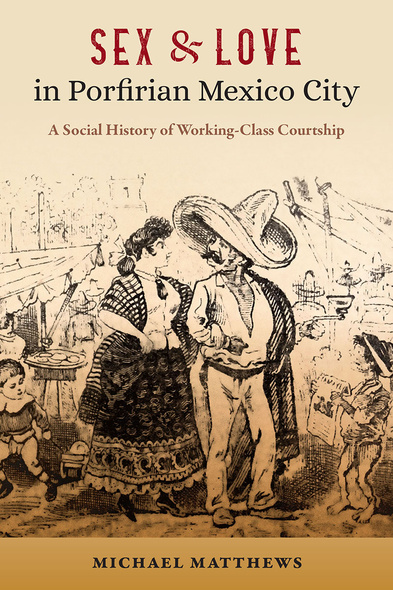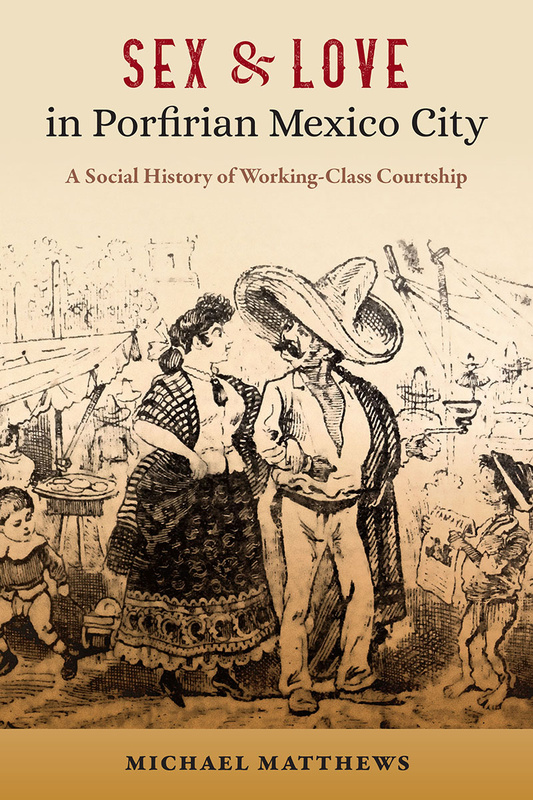
Sex and Love in Porfirian Mexico City
A Social History of Working-Class Courtship
Exploring the sexual lives of the poor and working class in turn-of-the-century Mexico
This social history explores the romantic and sexual lives of the poor and working class in Mexico City during the rule of dictator Porfirio Díaz from 1876 to 1911. By analyzing sexually based crime cases and stories in the penny press, Michael Matthews sheds light on everyday struggles, joys, and desires. Matthews argues that lower-class individuals had more liberated sexual lives than their wealthier counterparts, influenced by the city’s growth and cultural changes.
In this book, Matthews examines how Mexico City’s expanding infrastructure, increasing factory work, and new leisure and entertainment activities shaped courtship and sexual practices. He delves into the world of tenement buildings and street life to reconstruct days defined by love and desire, romance and rape, seduction and sex work, and promises kept and broken. Matthews connects the sexual culture of the poor to the changes taking place as the Mexican state modernized and underwent tremendous capitalist growth and development.
Sex and Love in Porfirian Mexico City provides insights into how social and economic developments shaped cultural norms surrounding honor, marriage, morality, and parental authority during this period. It will spur new reflections on the possible influence of lower-class culture on modern-day romance and sexual values.
“Matthews reconstructs a vibrant world of working-class Mexicans as they built their personal sexual relationships and negotiated state power. Their stories are rich and reveal intimate motivations, offering a window into the formation of Mexico City’s unique working-class culture at the dawn of the twentieth century.”—James A. Garza, author of The Imagined Underworld: Sex, Crime, and Vice in Porfirian Mexico City
“Well-researched and compelling. Appealing to historians of gender and sexuality as well as those interested in the working classes more broadly, it centers the stories of the working classes—really bringing history alive for the reader.”—Nichole Sanders, author of Gender and Welfare in Mexico: The Consolidation of a Postrevolutionary State
Michael Matthews is professor of history at Elon University. He is the author of The Civilizing Machine: A Cultural History of Mexican Railroads, 1876–1910.




